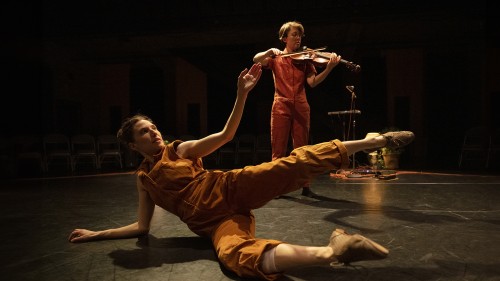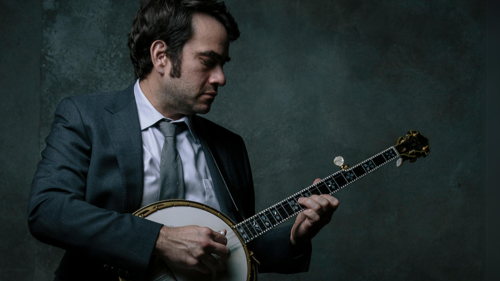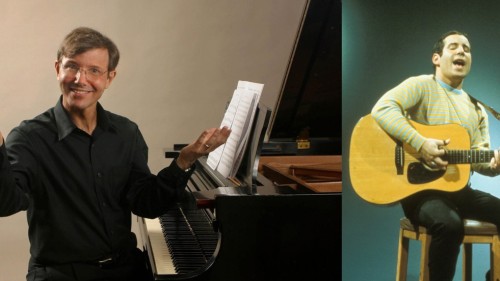
Action at a Distance: Graveyards and Gardens
Created and performed by Caroline Shaw & Vanessa Goodman
This site uses cookies to measure our traffic and improve your experience. By clicking "OK" you consent to our use of cookies.
Saxophonist Gregory Groover, Jr. and his quartet interpret the Negro Spiritual Songbook. In an ambitious multi-year project, Groover pays tribute to the hope and resilience of those who have gone before, updating their songs into today’s musical expressions. Hip-hop, blues, and jazz combine as Groover and his quartet make the powerful songs their own.
Raised with devotion for music, Gregory George Groover Jr is a twenty-seven year old tenor saxophonist and educator from Roxbury, Massachusetts. His love and pursuit of music directed him to the Boston Arts Academy where he graduated in 2011 as both the Elma Lewis Graduate with distinction and the Louis Armstrong Jazz award. His effort and dedication to music led him to earn a full tuition scholarship to Berklee College of Music where he received both his Bachelors and Masters in Music Performance Studies through the Global Jazz Institute, headed by world-renowned artistic director, pianist, and UNESCO Artist for Peace Danilo Perez.
As a performer, Gregory has had the honor to share the stage with prestigious musicians such as Philip Bailey (Earth, Wind, and Fire), Patrice Rushen, Terri Lyne Carrington, Danilo Perez, John Patitucci, Brian Blade, and Esperanza Spalding. As a bandleader and a sideman, he has performed in music festivals in the United States, Latin America, Europe, and Africa.
Currently, Gregory serves as the co-chair of music at his alma mater, the Boston Arts Academy where he provides instruction in Jazz studies to the next generation of artists and scholars. In addition to teaching, Gregory continues to perform regularly with his working bands and is earnestly working towards the release of his second album: the Negro Spiritual Songbook Volume II - “The Message”.
Negro Spirituals are at the bedrock of the African American musical experience, providing the foundation upon which many genres that are enjoyed now were built. Although the composers of these spirituals are largely anonymous and nameless, their music named the non-anonymous tragedy of slavery, while also naming a steadfast hope for a better tomorrow -- maybe not for them, but for the future generation. The Negro Spiritual Songbook Volume I is a product of that hope from the future generation. It takes the words, melodies, and rhythms of that time and translates it into our current context of the twenty-first century. The result is a soulful celebration of what was, a dynamic presentation of what is, and a warm invitation for what is to come.
The passion for this project emanated from the transformative effect Negro Spirituals have had on my life both personally and professionally as a musician. The lyrics and harmonies instilled a deep sense of pride for the music of my heritage, helping me to have a better understanding of the jazz music I love to play. Therefore, this project was accomplished through thorough examination of original scores, deep analyses of historical elements, and honest adaptations of arrangements. The hope is that through touring The Negro Spiritual Songbook Volume I at non-conventional jazz venues, such as churches, colleges, and museums, the performances will not only be enjoyable but educational -- helping to bridge the gap across the many divides of society.
Media sponsor![]()

Created and performed by Caroline Shaw & Vanessa Goodman

Featuring Boston String Academy


Created and performed by Caroline Shaw & Vanessa Goodman


Stay in touch with Celebrity Series of Boston and get the latest.
Email Updates Sign up for Email Updates